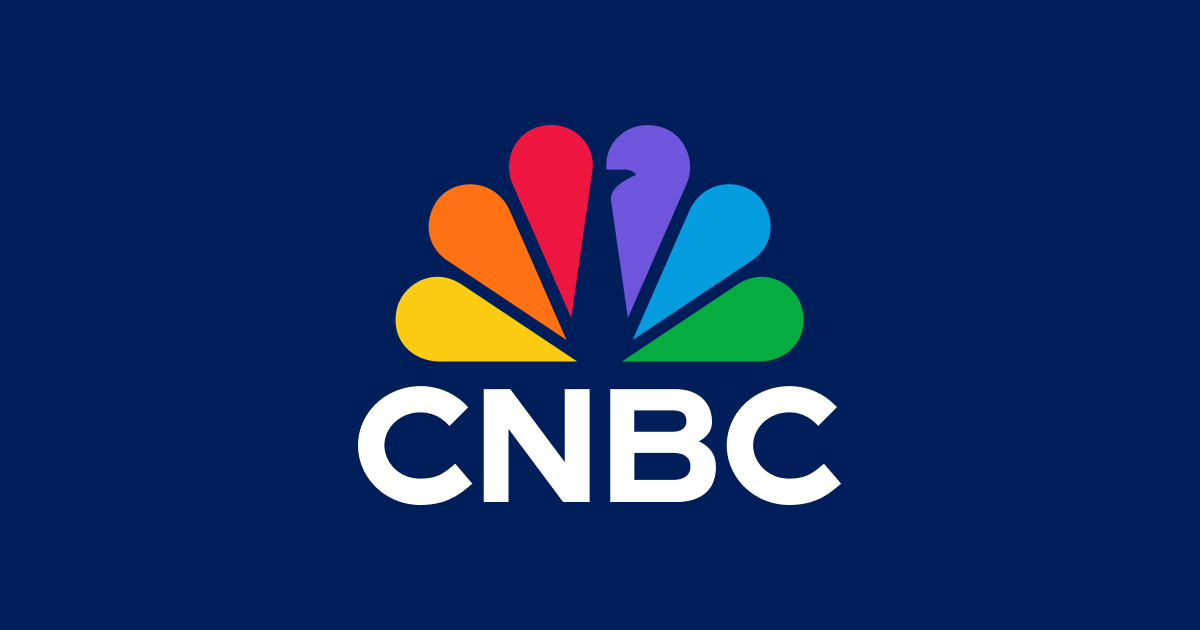WHEN: Today, Monday, May 6, 2024
WHERE: CNBC’s “Squawk on the Street”
Following is the unofficial transcript of a CNBC interview with Goldman Sachs Chairman & CEO David Solomon on CNBC’s “Squawk on the Street” (M-F, 9AM-11AM ET) today, Monday, May 6 from the 2024 Milken Institute Global Conference. Following is a link to video on CNBC.com: https://www.cnbc.com/video/2024/05/06/goldman-sachs-david-solomon-on-ai-strategy-job-impact-and-ma-environment.html.
All references must be sourced to CNBC.
DAVID FABER: Joining me now is David Solomon. He’s the Chairman and CEO of Goldman Sachs. And it’s good for you, good for me to have you back. We missed a year because we’ve made this somewhat of an annual tradition. So thank you for being here, David.
DAVID SOLOMON: Absolutely. I’m happy to, I’m happy to be here and happy to be with you. I’ve been at this event for a long time.
FABER: Yes, you have.
SOLOMON: And it keeps, keeps growing, so I’m happy to be here.
FABER: It is enormous. And a lot, obviously, that we’re going to be discussing here. In fact, you know, I mentioned this earlier, AI is going to certainly be one of the topics that is explored in depth here at the conference. And I noticed on your conference call from the middle of April, after you reported very strong numbers of Goldman Sachs, you decided to spend a lot of time on it. You know, it was right up there in the top of your initial remarks. You called it, comes up in virtually every client conversation I have, you said artificial intelligence. Why did you choose to sort of spend so much time on AI in the Goldman call?
SOLOMON: Well, I mentioned it. And, you know, if I mention anything on that call, it gets an amplification because it’s something that our clients are talking actively about because the changes, the transformation of compute is accelerating at such a pace. And the implications on productivity and efficiency in business are going to be enormous. We’ve been using AI, David, and you and I have talked about this for 20 years in our business in some way. But what’s changed now is the power of the compute that’s available, the speed and therefore your ability to apply it in different ways. And so I think there’s an enormous productivity opportunity. There are obviously efficiency opportunities. And also, if you think about the amount of capital that’s going to be necessary to implement this, the amount of energy and power that’s going to be necessary to implement it, this is something that people are going to have to think very strategically about. And that’s something that Goldman Sachs helps our clients with. So it’s a big opportunity.
FABER: There are enormous financing needs.
SOLOMON: Enormous financing needs, and that’s Goldman Sachs.
FABER: Where do you think we are when it comes to those needs, whether it’s building the data centers or, to your point, the infrastructure to actually power them, which is becoming more and more of a crucial issue?
SOLOMON: We’re very early in that journey, candidly. And I think one of the things that businesses are thinking about, one of the things that governments are thinking about is where is a lot of that capacity going to be housed. When you think about certain data center capacity that we’ve used for certain things in the past, latency has been very important. But here it’s not as clear latency is important. You need land. You need access to power. You need space. You actually need a regulatory environment that can be quite constructive to the implementation of all of this. And I think we’re early in the journey. I think it’s a global issue. And it’s something we’re focused on because our clients are focused on it. And I think we’ve got an ability to help them think through these issues and ultimately, you know, help finance, you know, this buildout, which is going to be hugely important for businesses.
FABER: Enormous, I mean, those CapEx numbers from the hyperscalers are just mind-boggling, those numbers.
SOLOMON: Incredible, yeah.
FABER: Back to AI in your business, though, David. You talked about use cases that you’re testing and implementing. Focusing, as you just said, you used the two words on productivity and efficiency. So when we talk about this larger sort of generative AI and what it may mean, it’s not going to mean a reduction in jobs?
SOLOMON: You know, I think that the first focus for this, David, is just productivity. We are a knowledge organization. We’re a professional services firm. We have an enormous number of smart, talented people all over the world. If you give them tools that allow them to expand their capacity to focus on things that are valuable for our clients, they can actually take on more. And it’s just, it’s a silly analogy to think back to when we started. If I go back to when I started 40 years ago, it took six hours to do a common stock comparison. Now, it takes an instant. It doesn’t mean over that journey we’ve had less people focused on our clients. So productivity, the ability to take smart people, give them tools so they can do more, do more quickly, help our clients think about things in different ways, that’s where our focus lies on this at the moment. And, of course, there are efficiency opportunities, and we focus on those too.
FABER: Right. And the testing, I mean, it’s, again, early days here in terms of what you’re seeing and how you’re seeing it.
SOLOMON: You have to test. You have regulatory structure. I mean, there’s a lot of work to do. I’d say it’s early. We have a lot of focus on it. We’re putting resources toward it. But this is going to be a journey, and it’s going to certainly, you know, play out over the course of the next few years just in terms of the acceleration of how on our platform we can create more productivity and more efficiency.
FABER: Yeah. Well, speaking of Goldman itself, obviously, you’re coming off of what was a very strong quarter. By the way, 25 years since the IPO. Congratulations.
SOLOMON: Twenty-five years since the IPO, Saturday.
FABER: Saturday, yes.
SOLOMON: And I was reflecting on it. I mean, it’s really, if you think back and you think about the journey, there’s been some very big disruptive events. 9-11 changed our lives forever, the way we think about the world. The financial crisis, pandemic. In fact, we shut down the stimulus that comes out of that. But through it all, you know, I’m super proud of the organization, our people. The organization stayed focused on our clients, growing our business. And, you know, we’ve accomplished a lot over the course of the last 25 years and, you know, hopefully more to come.
FABER: And, well, as I said, you had a very strong quarter. You did seem a little more positive in the overall environment than I’m accustomed to because you are, you know, you’re a realist at least. You haven’t been saying, hey, things are great. And you’re not. But at the same time, you do seem to think we’re going to see more M&A. Not seen any signs of it. It’s another Monday with really kind of a dearth of deals. We’re going to see more capital markets activity. OK. Definitely some IPOs that have started to bubble up. What’s giving you sort of a more positive tone, I guess?
SOLOMON: Well, I was trying to amplify. If you really look back at the second half of ’22 and the first half of ’23, got a little better in the second half of ’23. For investment banking activity, it was a 10-year low. Companies need to finance. Companies need to make strategic moves. The financial sponsor community, which is about 30 to 35 percent of investment banking, needs to transact in order to move their businesses forward. And we’ve seen a meaningful pickup in discussion, dialogue, and activity. Some capital markets activities now pulled through. M&A volumes haven’t been depressed. There’s no question that the regulatory environment, I think, is slowing some large-cap M&A. But overall, activity levels are picking up. We’ve seen an improvement in resources we’re deploying to transactions in the sponsor community. And so I just think it’s getting better. It’s off the bottom. In the call, I didn’t sit here and say we’re going back to 2021.
FABER: No, you didn’t. You didn’t. But I did notice a more positive tone.
SOLOMON: I think it’s, I think it’s picking up. I think we see more activity. And our business is obviously very correlated to that activity.
FABER: Do you think as the election looms, not larger, as it gets closer, does that paralyze anybody when it comes to activity?
SOLOMON: I, you know, I think an election is a moment in time. You know, there will obviously be a perception of markets before that election and a perception of markets after that election. But in terms of the things we’re talking about, M&A activity, capital markets activity, I just think if you’re going to look at the next 12 to 24 to 36 months, we’re going to see activity levels that look more in line with 10-year averages than well below 10-year averages.
FABER: A couple of rate cuts might help. Do you think we’ll get them?
SOLOMON: You know, I’ve been more cautious on that. You know, early in the year, when I was — when I was on the network and people were thinking about seven rate cuts, you know, I was more cautious. You know, I think inflation continues to be a little bit sticky. I think there’s a possibility of a rate cut or two this year. But I could also see if the data, you know, doesn’t prove, you know, to move in a direction to support that, that we could stay where we are. So I think the Fed’s been very clear. They’re watching the data. And, you know, until they see, you know, inflation come in just a little bit more, they’re going to be cautious on whether or not they move rate cuts to the system.
FABER: Something that’s come up in my conversations with you and some of your colleagues through the years is the idea that buried within Goldman is a, is a black stone. And we don’t get any credit for it. You know, I noted that you have $296 billion in alternative assets under supervision.
SOLOMON: Yeah.
FABER: That’s a pretty big number, $296 billion. Going up, obviously, significantly. You’re a fairly big player in private credit. Is there a point at which you think that suddenly that will get more attention, the fee-related earnings that come from those assets will from the investor perspective?
SOLOMON: Well, I think you know, David, because we’ve talked about this a bunch. We have two key focus areas for the firm. Our global banking and markets business and our asset wealth management platform. We’ve been growing our asset wealth management platform very nicely. We had a target when we did our initial investor day in 2020 of raising $150 billion of alternatives by the end of 2024. We upped that to $225 billion. We met that target a year early. And we’ve said to the market that we expect to raise another $40 to $50 billion this year. So we have a really broad, full-service asset and wealth management platform. It’s growing. It’s a big focus of the firm. And I think over time, the firm, the market is becoming more aware of the strength of this franchise and its ability to really create unique solutions. It’s a solution-based business that can really support our clients’ needs. And so we’re in a very unique position with a full scope of products from liquidity, the public fixed income and equities to alternatives on a global basis to really serve capital allocators well. We think it’s an area we can grow in quite consistently over the course of the next couple of years. We’ve got it organized in a way right now where we think it’s very well positioned to serve our clients. And so that’s getting a lot of focus inside the firm. And I think over time, investors appreciate more the scale of that business and the opportunity that it puts forward for the firm.
FABER: Well, you talked, you got $130 billion in private credit assets right now. You think you can get to $300 billion over the next five years. Why?
SOLOMON: I, I think we’re in a position where we have a strong franchise in private credit. You know, there are a number of firms out there that are very, very focused on it. At the end of the day, I think there are going to be 10 to 15 firms that have a real leadership position in the private credit space. I think we’re one. And I think we have a very, very unique ecosystem because we have both the broad syndication and banking platform that we’ve always had, and we also have a big private credit platform.
FABER: Do they compete with each other or do they work together?
SOLOMON: They actually complement each other. When you think about a client that’s coming to market and they’re trying to raise capital, they want a menu of the most alternatives possible. And the firm’s in a position to give them a very broad array of alternatives to meet their financing needs. And so I think we’re in a very unique position.
FABER: You said you saw, on the call that you saw people, that you saw some clients actually refinancing private credit through the syndicated loan market.
SOLOMON: I think you’re seeing, you’re seeing both.
FABER: OK.
SOLOMON: So you’re seeing, you’re going to continue to see a growth in private credit, but I do think you’re seeing a pickup in debt financing in the traditional way, and we’re positioned to capture that both ways. And it’s not either or. It’s and.
FABER: Yeah.
SOLOMON: It’s and for our clients.
FABER: And, you know, speaking of financing, then, sponsor activity remains incredibly low. Any expectation that’s going to pick up?
SOLOMON: You know, sponsors are commercial. They make money when they buy things. They make money when they sell things. They haven’t been buying a lot or selling a lot. There’s a lot of pressure from LPs to increase the return velocity of capital. I think we had a big reset on valuations. We had a big reset on leverage capacity, and I think the market has absorbed that, and you’re starting to see that activity pick up. We have indicators inside the firm around resources we deploy to support clients in transactions, not all of which are completely visible at this point, and that activity level is definitely increasing. So I do think you’re going to see a pickup through the remainder of the year in that kind of activity.
FABER: And finally, David, I mean, I mentioned 25 years since the IPO. I know you’re not going to be here for another 25 years, but—
SOLOMON: God forbid, David. I mean, hopefully here, but not here.
FABER: Hopefully on this planet.
SOLOMON: Yes, hopefully on this planet, but not here talking to you at 7:30 in the morning on the first day of the Milken Conference.
FABER: But that said, retirement, it would seem, is a long way away for you, fair to say?
SOLOMON: I’ve got a lot of energy. I’m focused on our clients. I’m focused on our people. I’m focused on our business. And I feel good about where the firm is. I feel good about the progress we’ve made over the course of the last few years, and we’re going to continue to execute, serve our clients. We’ve got an incredible talent ecosystem at Goldman Sachs, and I just think the firm is an exciting place to be right now and so we’re going to stay focused and continue to move forward.
FABER: Although some of those double-digit returns that you saw and, you know, I mean, are they sustainable in global banking and, you know?
SOLOMON: We’ve been, we’ve been very, we’ve been very, you know, clear that we feel that we can run our mix of businesses in a mid-teens level return through the cycle. That doesn’t mean we’re going to see that every year, but we’ve been clear that we’re marching in that direction and confident in our ability to deliver that for shareholders.
FABER: Yeah, I mean—
SOLOMON: So, we’re going to continue to stay focused on delivering for our shareholders.
FABER: Almost an 18 percent RRE for the global bank in the markets business.
SOLOMON: Well, I said on the, I said on the earnings call that we had a very, very good quarter, and that should not be the expectation for every quarter. But our mix of businesses, we think we can deliver mid-teens returns through the cycle. And we think our shareholders will do very well if we continue to do that.
FABER: Yeah. Alright. David, good to catch up. Thank you.
SOLOMON: Thank you, David. Appreciate it. Great to see you.
FABER: Good to see you as well. David Solomon, CEO of Goldman Sachs.


